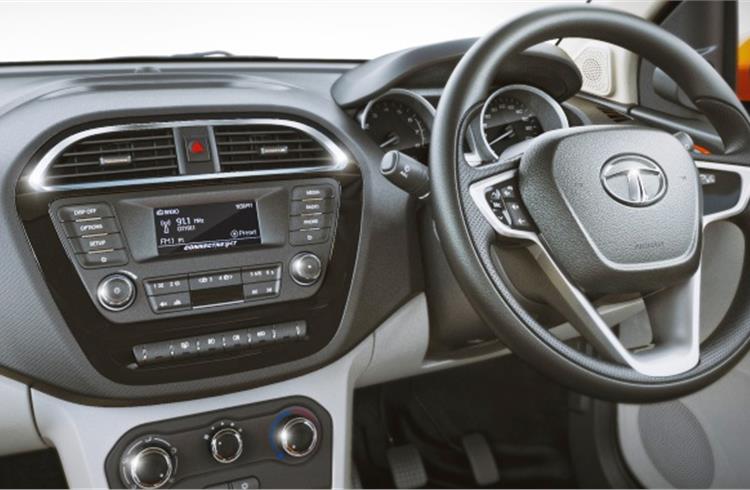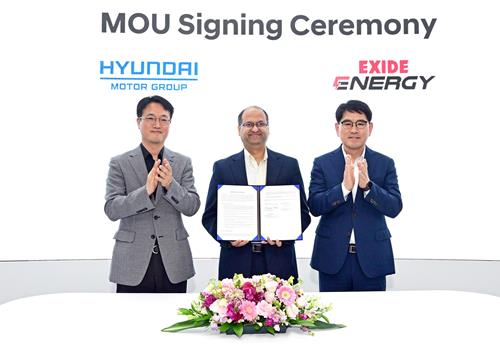Samsung Electronics to acquire Harman International for $8 billion
Samsung to accelerate growth in automotive and connected technologies with Harman acquisition, addressable market expected to exceed $100 billion by 2025.
Betting big on connected car technologies, South Korean electronics major Samsung plans to acquire US-based Harman International for US$ 8 billion.
While Samsung is a consumer electronics company, Harman is best known for making car audio (under brands such as Harman / Kardon and JBL) and infotainment systems.
Last week, Samsung Electronics and Harman International announced that they have entered into a definitive agreement under which Samsung will acquire Harman for a total equity value of approximately US$ 8 billion.
This development will provide Samsung a large presence in the automotive industry through connected car technologies, which is estimated to exceed US$ 100 billion by 2025 in terms of global market value. The connected car technologies include embedded infotainment systems, telematics, connected safety and security and others.
According to Samsung, making inroads into the connected car technologies, a big growth segment, has been a strategic priority. The acquisition also brings more than 30 million vehicles, which are currently equipped with Harman-made connected car and audio systems, directly under Samsung’s umbrella. Furthermore, Samsung will now also get the access to Harman’s client portfolio, which includes all major car manufacturers.
According to Harman International, around 65 percent of its total reported turnover of US$ 7 billion for the accounting year October 2015- September 2016 were contributed by the automotive industry. Additionally, the company claims that its order backlog for auto industry as on June 30, 2016 stood at US$ 24 billion.
An official release says, “Harman’s experience in designing and integrating sophisticated in-vehicle technologies, as well as its long-term relationships with most of the world’s largest automakers, will create significant growth opportunities for the combined business by enabling it to leverage Samsung’s expertise in connected mobility, semiconductors, user experience, displays and its global distribution channels. “
“Harman perfectly complements Samsung in terms of technologies, products and solutions, and joining forces is a natural extension of the automotive strategy we have been pursuing for some time,” said Oh-Hyun Kwon, vice-chairman and CEO of Samsung Electronics.
“As a Tier 1 automotive supplier with deep customer relationships, strong brands, leading technology and a recognized portfolio of best-in-class products, Harman immediately establishes a strong foundation for Samsung to grow our automotive platform. Dinesh Paliwal is a proven global leader and, in our extensive discussions, we have developed deep respect for him, his strong senior leadership team and Harman’s talented employees. Harman’s sustained track record of rapid growth fueled by technology leadership and an unmatched automotive order pipeline reflects its commitment to innovation and customers.”
“The vehicle of tomorrow will be transformed by smart technology and connectivity in the same way that simple feature phones have become sophisticated smart devices over the past decade,” added Young Sohn, president and chief strategy officer of Samsung Electronics.
“We see substantial long-term growth opportunities in the auto technology market as demand for Samsung’s specialised electronic components and solutions continues to grow. Working together, we are confident that Harman can become a new kind of Tier 1 provider to the OEMs by delivering end-to-end solutions across the connected ecosystem,” he added.
Commenting on this acquisition, Dinesh Paliwal, Harman chairman, president and CEO, said: “Samsung is an ideal partner for Harman and this transaction will provide tremendous benefits to our automotive customers and consumers around the world. Combining Samsung’s strengths in leading-edge displays, connectivity and processing solutions with Harman’s technology leadership and long-standing customer relationships will enable OEMs to provide new offerings for their customers. Partnerships and scale are essential to winning over the long term in automotive as demand for robust connected car and autonomous driving solutions increases at a rapid pace. This transaction will bring Harman and Samsung’s complementary strengths together to accelerate innovation in this space. We look forward to working together with Samsung to elevate experiences for consumers worldwide.”
India impact
It is yet to be understood how this global acquisition by Samsung will impact Harman’s India-based operations. The company had inaugurated its first manufacturing plant in Chakan, near Pune, in November 2014. The facility has a current installed capacity to manufacture 400,000 car sets per year. Besides that, the company has an acoustics systems engineering centre in Pune. The company is known for developing the infotainment systems in some recently launched passenger cars from Tata Motors such as the Tiago, Zest, and Bolt.
RELATED ARTICLES
IIT Bombay inaugurates Arun Firodia Research Floor
IIT Bombay, one of India’s top technical and research institutions, honours Kinetic Group chairman Dr Arun Firodia, one ...
Maruti Suzuki expands capacity at Manesar plant by additional 100,000 units
New assembly line at Plant A expands total manufacturing capacity at the Manesar plants to 900,000 units per annum. Alon...
Hyundai and Kia partner Exide Energy to produce LFP batteries in India
Partnership with Exide Energy enables Hyundai Motor and Kia to equip future EVs in the Indian market with locally produc...





 By Autocar Pro News Desk
By Autocar Pro News Desk
 22 Nov 2016
22 Nov 2016
 7455 Views
7455 Views









